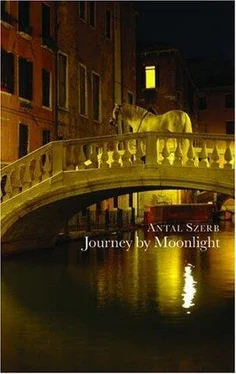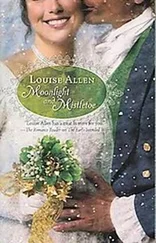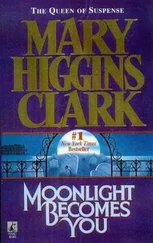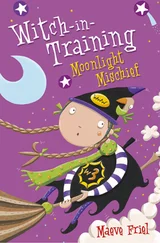“Never mind,” he thought. “I’ll move up to the front at the next station.”
“Will this be your first visit to Perugia?” asked the friendly native.
“To Perugia? I’m not going to Perugia, unfortunately.”
“Then you must be going on to Ancona. That’s not a good idea. Stop off at Perugia. It is a very old city.”
“But I’m heading for Rome.”
“For Roma? You are joking.”
“I’m what?” asked Mihály, thinking he must have misheard the word in Italian.
“Joking,” shouted the Italian. “This train doesn’t go to Roma. My, what a witty fellow!” (using the appropriate idiom).
“And why shouldn’t this train go to Rome? I got on at Florence with my wife. It said Rome on it.”
“But that wasn’t this train,” the Italian replied with glee, as if this was the greatest joke of his life. “The train to Roma went earlier. This is the Perugia-Ancona train. The line forks at Terontola. Wonderful! And the signora is happily on her way to Roma.”
“Terrific,” replied Mihály, and stared helplessly out of the window at Lake Trasimene, as if an answer might come paddling across it towards him.
When he had taken his cheque and passport the night before he had thought — of course, not really seriously — that they might perhaps find themselves separated during the journey. When he got off at Terontola it had again flitted across his mind that he might leave Erzsi to continue on the train. But now that it had really happened he was amazed and disturbed. But at all events — it had happened!
“And what will you do now?” urged the Italian.
“I shall get off at the next station.”
“But this is an express. It doesn’t stop before Perugia.”
“Then I’ll get off at Perugia.”
“Didn’t I just say you were going to Perugia? You’ll get there, no problem. A very old city. And you must visit the surrounding countryside.”
“Great,” thought Mihály. “I’m on my way to Perugia. But what will Erzsi do? Probably go on to Rome and wait there for the following train. But she might also get off at the next station. Perhaps she’ll go back to Terontola. And she won’t find me there. It won’t be easy for her to work out that I left on the Perugia train.
“Yes, that’ll fox her. So if I now get off at Perugia, it’ll certainly be a day or two before anybody finds me. It will take even longer if she doesn’t stop in Perugia but carries on from there on God knows what line.
“Lucky that I’ve got my passport with me. Luggage? I’ll buy myself a shirt and whatnot — underwear is good and cheap in Italy. I was going to buy some anyway. And money … how are we off for money?”
He took out his wallet and in it discovered his National Bank lire cheque.
“Of course, last night! … I’ll change it in Perugia, there must be a bank there that will take it.”
He snuggled into his corner and fell deeply asleep. The friendly Italian woke him when they reached Perugia.
Tiger, Tiger, burning bright
In the forests of the night …
WILLIAM BLAKE
THE SCENE is the great Umbrian plain. In one corner, on its high table of rock, stands Perugia. In the other, propped against the vast hill of Subasio, Assisi gleams white, or, for a few days every year, is ablaze with flowers. Everywhere teeming fruit-trees filled the air with their annual jubilation: the strange, twisting-branched mulberries, the pale Italian-green olives, and those great lilac-coloured trees whose name Mihály could learn from no-one. By day one could go about in shirt-sleeves. The evenings were still rather cool, but not unpleasantly so.
Mihály went on foot from Spello to Assisi, and thence up to the town’s highest point, the Rocca. There he listened while a wise and beautiful Italian boy explained its history, sat on a wall of the old fortress, gazed for long hours across the Umbrian landscape, and was happy.
“Umbria is totally different from Tuscany,” he thought: “more rustic, more ancient, more holy, and perhaps a shade bleaker.
“The land of the Franciscans, and the true hilltop town. Back home, they always built down in the valleys, under the hills. But here they build up on the hills, above the plain. Did those early founders harbour some obscure race memory of enemy attack? What was the terror that drove them ever upwards to the protection of steep rocks? Wherever a hill rose up out of the plain they immediately built a town on it.
“And here every town is in fact a city. Spello, for example. Back home it would be a mean little village. Here it’s a real city, with a cathedral and a coffee-house, much more so than, say, Szolnok or Hatvan. And no doubt some great painter was born here, or some great battle took place nearby.
“The Italian landscape isn’t as simply friendly and merely pretty as I had imagined it. Certainly not here in Umbria. Here there is something desolate, something dark and rugged, like the bay-tree: that exactly epitomises the harsh attractiveness of Italy. Perhaps it’s the great barren hills that do it. I would never have thought there were so many barren and really high mountains. There are still patches of snow on Subasio.”
He broke off a branch of the tree whose name he did not know and, bedecked with flowers, cheerfully made his way down to the town. In the piazza, opposite the ancient temple of Minerva — the first ancient temple Goethe saw on his Italian travels — he sat down outside a little café, ordered vermouth, and asked the waitress the name of the tree.
“Salsify,” she lisped, after a slight hesitation. “Salsify,” she repeated, without conviction. “At least that’s what they call it back home, up in Milan. But here everything has a different name,” she added, with contempt.
“Like hell it’s salsify,” thought Mihály. “Salsify would be the house-leek. This must be the Judas tree.”
But this detail aside, he felt very content. The Umbrian landscape diffused a general happiness, an unassuming Franciscan happiness. He felt, as so often in his dreams, that the important things happened not here but elsewhere, up there in Milan perhaps, where the sad exile, the little lisping girl, came from, or where Erzsi was … but now he was filled with the happy feeling that he did not have to be where the important things happened, that he was somewhere entirely other, behind God’s back.
During his walk to Assisi the hope had occurred to him that he might perhaps meet Ervin. In their youth, when Ervin was dominant in the group, they had read everything they could about the great saint of Assisi. Ervin must surely have joined the Franciscan order. But Mihály did not meet him, nor could the Franciscan churches revive the religious fervour of his youth, not even Santa Maria degli Angeli, built around the Portiuncula where the saint died. He decided not to wait around there until nightfall, fearing that anyone looking for him might well find him in such an obvious venue for tourists. He moved on, and by evening reached Spoleto.
Here he dined, but did not enjoy the wine at all. These Italian reds sometimes end up smelling of methylated spirits, or onions, God knows why, when at other times they can be so unaccountably fine. He became even more depressed when he realised at the counter that, despite every economy, the money he had cashed in Perugia would soon run out, and he had no idea what he would then do. The outside world, which he had been so happy to forget in Perugia and its plain, began here to breathe once more down his neck.
He took a cheap room in a cheap albergo —there really wasn’t much choice in this tiny place — and then set off for one more little stroll before dinner round the back streets of Spoleto. Clouds veiled the moon. It was dark and the narrow lightless alleys of the sombre town closed around him, but not in the welcoming way the little pink streets had in Venice. Somehow he ended up in the sort of district where, with every step, the lanes grew darker and more menacing, the stairways led to ever more mysterious doors. He could see absolutely no-one about — he had quite lost his way — and then he suddenly felt sure that someone was following him.
Читать дальше












